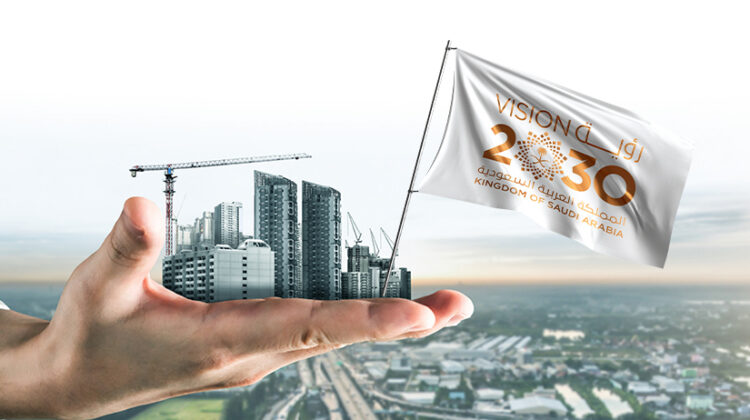
the potential impact of Vision 2030 on the construction sector in Saudi Arabia:
Saudi Arabia’s Vision 2030 is a comprehensive plan aimed at diversifying the country’s economy, reducing its dependence on oil revenues, and transforming it into a global investment powerhouse. The construction sector plays a significant role in achieving the objectives of Vision 2030. Please note that there may have been developments or changes in the Vision 2030 plan and its impact on the construction sector since then.
Here’s an overview of the potential impact of Vision 2030 on the construction sector in Saudi Arabia:
- Infrastructure Development: Vision 2030 emphasizes the development of infrastructure as a critical component of economic diversification. This includes building new transportation networks, such as the Riyadh Metro and various road projects, as well as expanding and upgrading ports, airports, and logistics hubs. These infrastructure projects create substantial opportunities for the construction industry, including the construction of roads, bridges, airports, and public transportation systems.
- Housing and Real Estate: The plan includes initiatives to address the housing shortage in Saudi Arabia. The government aims to increase home ownership rates and improve the quality of housing. This will lead to an increased demand for residential construction projects, such as housing complexes, apartments, and infrastructure supporting housing developments.
- Tourism and Entertainment: Vision 2030 aims to develop the tourism and entertainment sectors, including the construction of world-class tourist destinations, hotels, resorts, and entertainment venues like NEOM and the Red Sea Project. These mega-projects require extensive construction work and offer substantial opportunities for the sector.
- Energy and Industry: The plan includes efforts to diversify the economy by expanding the industrial and energy sectors. This may involve constructing industrial complexes, petrochemical plants, and renewable energy projects, all of which contribute to the construction sector’s growth.
- Urban Development: Vision 2030 promotes urban development and the creation of smart, sustainable cities. The development of smart cities and the revitalization of existing urban areas involve significant construction work, including infrastructure, buildings, and utilities.
- Public-Private Partnerships (PPPs): The government is actively encouraging private sector participation in various projects through PPPs. This opens up new avenues for construction companies to collaborate with the government on infrastructure and development projects.
- Skills Development: To support the growth of the construction sector and other industries, Vision 2030 emphasizes human capital development. This includes investing in education and training programs to develop a skilled workforce, which is essential for the construction industry’s success.
- Regulatory Reforms: The government has been working on regulatory reforms to make it easier for businesses to operate in the construction sector. Streamlining permitting processes and ensuring transparency can positively impact construction companies.
- Sustainability: Sustainability is a key focus of Vision 2030. This includes promoting sustainable construction practices, energy-efficient buildings, and environmentally friendly infrastructure projects.
- International Collaboration: Saudi Arabia seeks international collaboration and investment in its Vision 2030 projects. This can bring in expertise and technology that can benefit the construction sector.
It’s important to note that the success of these initiatives and their impact on the construction sector will depend on various factors, including economic conditions, political stability, and the effective implementation of Vision 2030 policies. As the plan progresses, there may have been updates and new developments that have further shaped the construction sector in Saudi Arabia.


